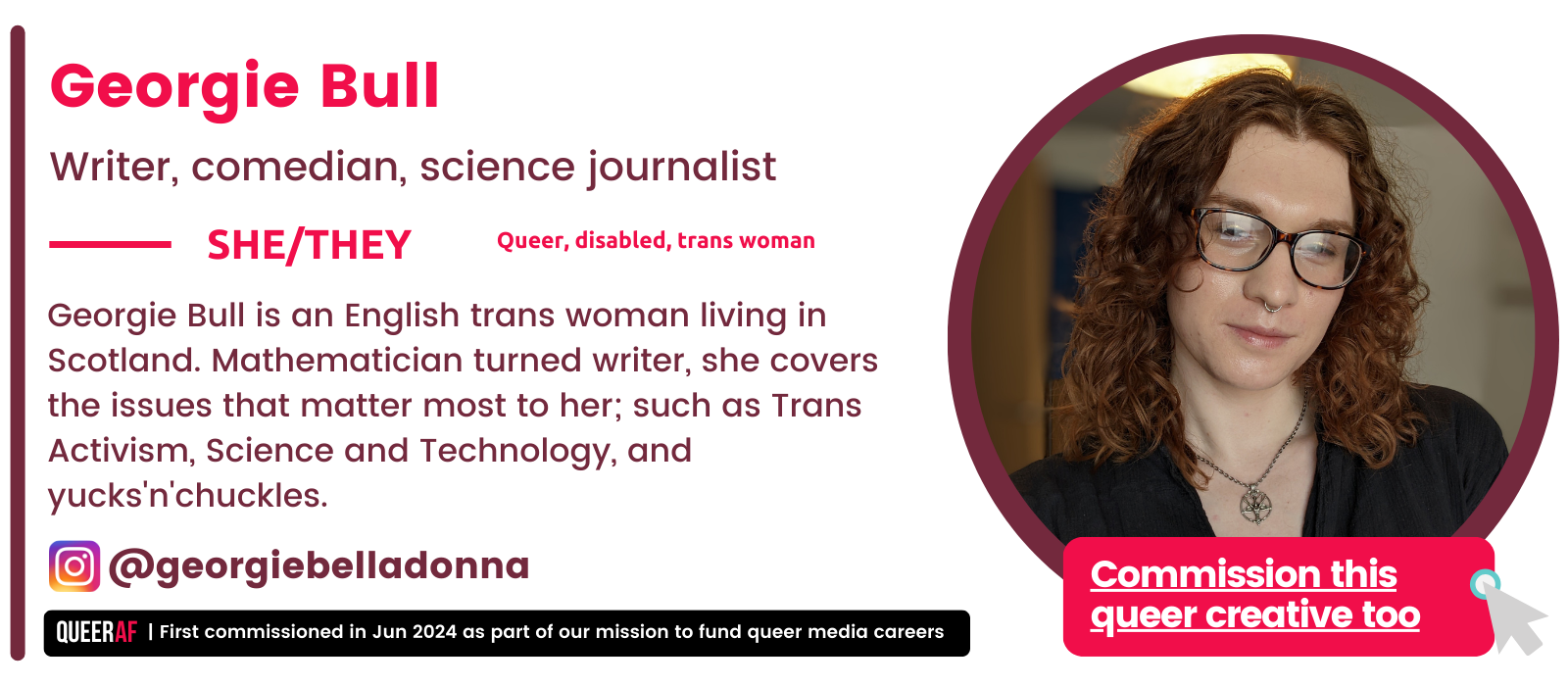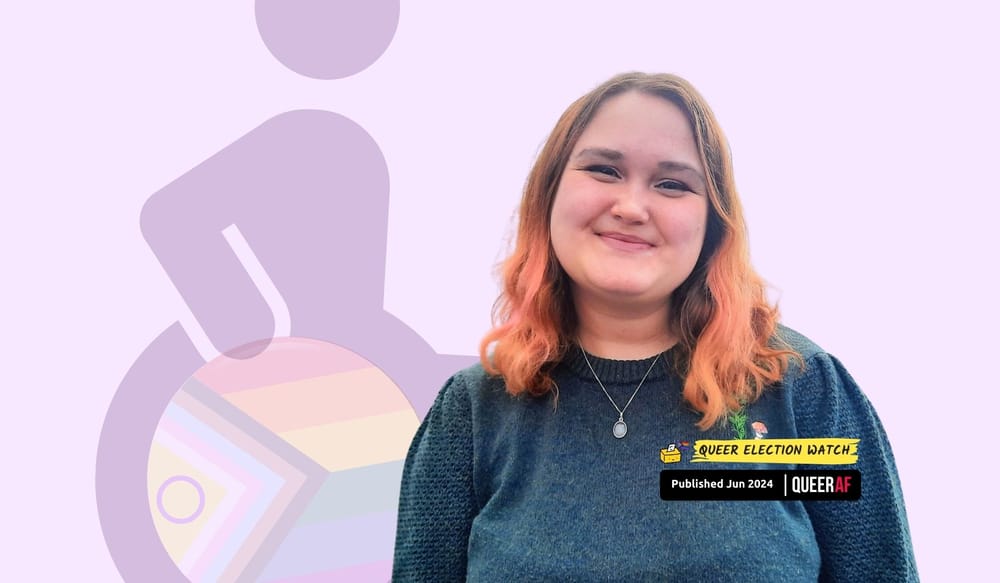
Normally, journalists would think twice about creating any form of threat towards clients of a rape crisis centre while they’re trying to access help, so what was the cause of the heartless oversight? It was an opportunity to get “Trans” in a headline.
The Edinburgh Rape Crisis Centre recently lost an employment tribunal for their ‘flawed’ disciplinary process of an employee who expressed gender-critical beliefs. Though these beliefs are protected in UK law, they are widely condemned as an extremist anti-rights movement, and actions leading from these beliefs aren’t necessarily protected.
As a transgender survivor of sexual violence, Edinburgh Rape Crisis Centre’s actions signalled that they are a safe place to seek help (which is not guaranteed in the UK), and they are. They are excellent.
After the tribunal ruling, however, I received a message informing me that their building was being subject to ‘press attention’ and asking if I wanted to cancel my appointment. The illusion of safety was shattered. These appointments are supposed to be a place of privacy, safety and healing. Journalists waiting outside, unknown to vulnerable and traumatised service users, delivers none of that.
This threat of more harassment, potential press attention and even being captured on camera, caused me to have two panic attacks in the run-up to my appointment.
When I arrived at the Edinburgh Rape Crisis Centre, shaking but ready for the interview, there were thankfully no journalists there. The relief I felt was quickly subsumed by the usual fear and anger. Whilst attending the centre, I learned that “bigoted” and “hostile” journalists had spent time outside the building as the story was in the headlines. That action robbed me - and I’m sure many other service users - of dignity and privacy. I struggle to see how it can be justified.
There has been an explosion of articles on trans people in the British press over the last few years. It is seen as a ‘hot topic’, a culture war issue guaranteed to grab the reader’s attention and satisfy the demand for content.
You can get used to anything. Hate crime, abuse, and assault is an everyday fear for me now. Fuelled by an abusive media frenzy over our existence, violence against trans people rises year on year and sits at a record high.
I am used to the deluge of messages telling us that our bodies are criminal and our existence is a threat, but I never expected direct media harassment of sexual assault survivors. I should have known better.
Something that gets all too lost is that transphobia harms everyone. It only takes a look at the rapidly increasing number of cisgender women being denied access to ‘single-sex’ spaces and it’s easy to realise that the policing of women’s bodies and behaviours hurts all of us.
It shouldn’t take US laws mandating genital inspections of children suspected of being trans, for us to see that this isn’t about protecting anyone.
As ever with discrimination, anti-trans narratives affect marginalised groups the most.
This alongside growing evidence that transphobia and white supremacist views are intrinsically linked. Cis and trans women alike are harassed, attacked, and murdered for not conforming to stereotypes of how a woman should look and behave, and this violence disproportionately affects people of colour.
To quote writer and lawyer Olayemi Olurin, “Transphobia is not a trans problem, it’s all of ours.”
In an election cycle with such a transphobic focus, this fact is often overlooked by those kicking around the ‘political football’ of our human rights.
Rampant transphobia is peddled as fair political ‘debate’. Gender critical extremists have entrenched a rhetoric that major political powers now dance to.
It is utterly disingenuous, as many politicians and gender critical activists have, to frame this agenda as “protecting women and girls”, to - in the name of women’s rights - harass rape survivors who have nowhere else to go.
The UK trans community’s fate is being decided in a trial by media, where clicks are trumping reason or humanity. The sentence is a normalisation of transphobia that is spilling out into the streets in the form of violence, rising hate crimes, and increasing prejudice.
In the run up to this election, it is more important now than ever that we see this scapegoating for what it is.
Stay tuned to Queer Election Watch for more on the issues that matter to you. Check out the most recent policy check, on conversion practices, on DIVA and QueerAF now.

For media as diverse as we are.
"As someone that didn't go to University I often doubt myself as a capable communicator, especially as the first Director I worked for at the Guardian told me I'd never be eloquent enough if I didn't have a degree.
"But I can categorically say that the half-hour editing and feedback chat with Jamie Wareham has built my confidence and given me far more valuable advice. What a profoundly beautiful thing QueerAF are doing within news & media."
That's what Ray Cooper, who also wrote in the Queer Election Watch series, said about our approach and support on LinkedIn last week.
That's the power of our work; that's the power of our unique approach to journalism; that's what over 300 QueerAF members help us do.
Are you the next one to help us develop a new generation of LGBTQIA+ journalists who can work in the media, to change the newsroom so together - we can change the country?











